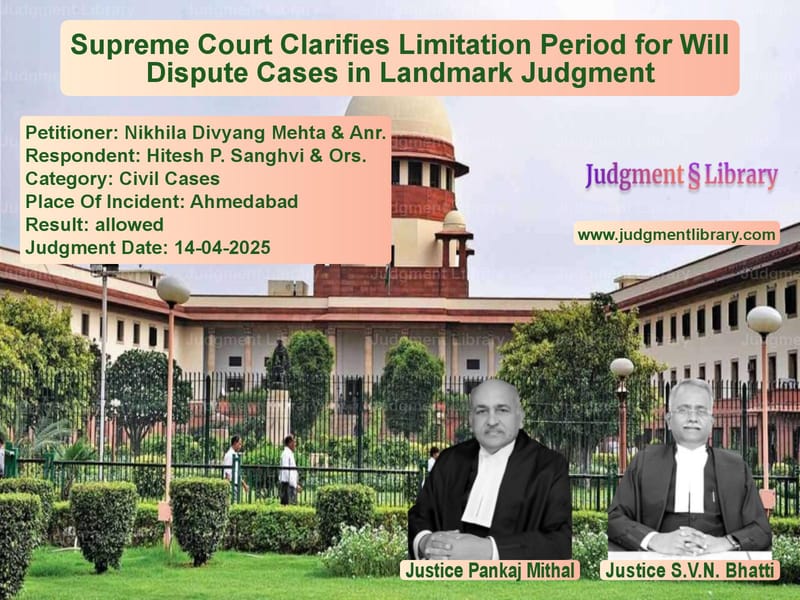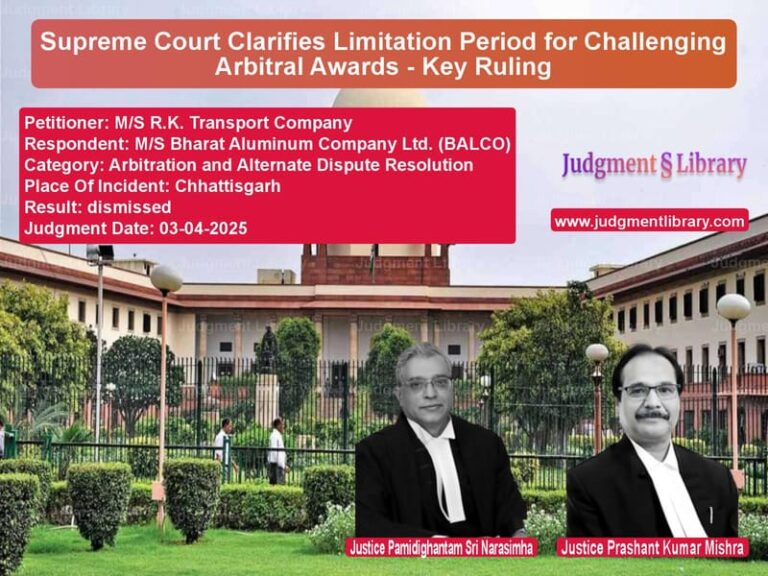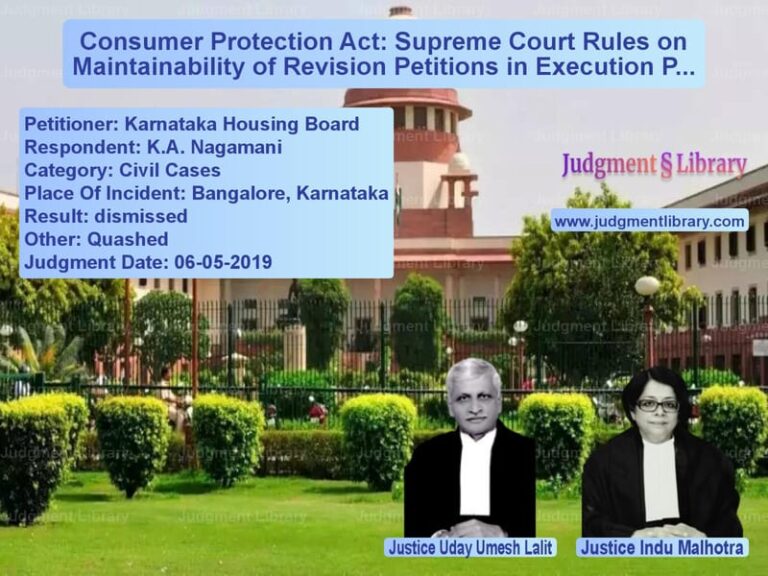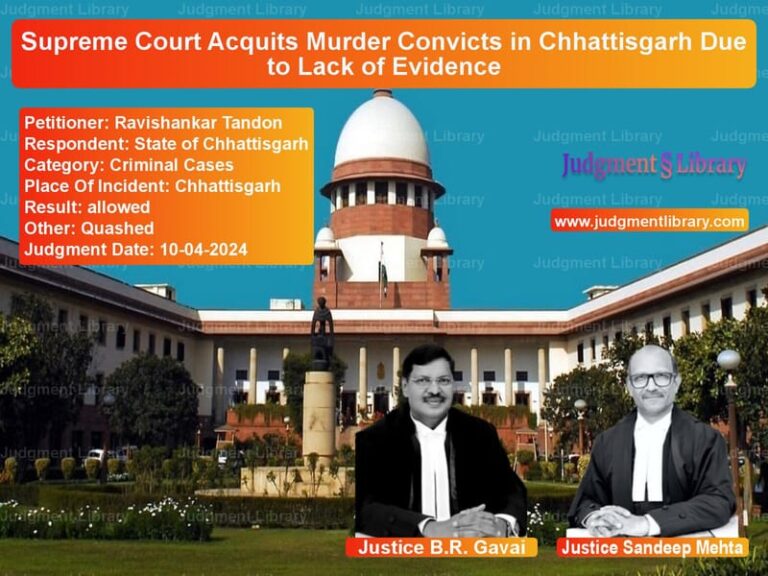Supreme Court Clarifies Limitation Period for Will Dispute Cases in Landmark Judgment
In a significant ruling on inheritance disputes, the Supreme Court of India recently delivered a judgment in the case of Nikhila Divyang Mehta & Anr. vs Hitesh P. Sanghvi & Ors. that clarifies crucial aspects of limitation law in will challenge cases. The judgment, pronounced by Justices Pankaj Mithal and S.V.N. Bhatti on April 15, 2025, overturned a High Court decision and reinstated the trial court’s order rejecting a plaint as time-barred under Order VII Rule 11 of the Civil Procedure Code.
The case originated from a family dispute over a will and codicil executed by Pramod Kesurdas Sanghavi, who passed away on October 21, 2014. The plaintiff, Hitesh P. Sanghvi (son of the deceased), filed a suit on November 21, 2017, seeking to declare his father’s will dated February 4, 2014 and codicil dated September 20, 2014 as null and void. The defendants (the deceased’s daughters and grandson) moved applications under Order VII Rule 11 CPC for rejection of the plaint, contending it was filed beyond the three-year limitation period prescribed under Article 58 of the Limitation Act, 1963.
The Supreme Court meticulously analyzed the plaint’s averments, noting that the plaintiff himself had stated he became aware of the will and codicil in the first week of November 2014. The Court emphasized: ‘The use of the words “when the right to sue first accrues” as mentioned in Article 58 is very relevant and important. It categorically provides that the limitation of three years has to be counted from the date when the right to sue first accrues.’ The bench rejected arguments about ‘complete knowledge’ versus ‘initial knowledge’, stating: ‘It is a complete fallacy to make any distinction between “knowledge” and “full knowledge”.’
Justice Mithal, writing for the bench, explained: ‘Section 3 of the Act contemplates that every suit instituted after the period prescribed under the Act shall be dismissed even if limitation has not been set up as a defence. The aforesaid provision is of a mandatory nature and cannot be ignored by the courts even if not pleaded or argued by the defence.’ The Court noted that even calculating from the plaintiff’s date of knowledge (first week of November 2014), the suit filed on November 21, 2017 was clearly time-barred.
The judgment provides important clarity on several legal principles. First, it reaffirms that limitation periods under Article 58 run from when the right to sue first accrues, not from when a plaintiff acquires complete information. Second, it emphasizes that courts must dismiss time-barred suits suo moto under Section 3 of the Limitation Act, regardless of whether defendants raise the limitation defense. Third, it establishes that when primary reliefs in a suit are time-barred, ancillary reliefs dependent on them cannot survive independently.
This ruling has significant implications for inheritance disputes and will challenge cases across India. It underscores the importance of prompt legal action when contesting wills and serves as a reminder that courts strictly enforce limitation periods as a matter of public policy to provide finality to legal disputes.
Petitioner Name: Nikhila Divyang Mehta & Anr..Respondent Name: Hitesh P. Sanghvi & Ors..Judgment By: Justice Pankaj Mithal, Justice S.V.N. Bhatti.Place Of Incident: Ahmedabad.Judgment Date: 14-04-2025.Result: allowed.
Don’t miss out on the full details! Download the complete judgment in PDF format below and gain valuable insights instantly!
Download Judgment: nikhila-divyang-meht-vs-hitesh-p.-sanghvi-&-supreme-court-of-india-judgment-dated-14-04-2025.pdf
Directly Download Judgment: Directly download this Judgment
See all petitions in Succession and Wills
See all petitions in Property Disputes
See all petitions in Contract Disputes
See all petitions in Debt Recovery
See all petitions in Damages and Compensation
See all petitions in Judgment by Pankaj Mithal
See all petitions in Judgment by S.V.N. Bhatti
See all petitions in allowed
See all petitions in supreme court of India judgments April 2025
See all petitions in 2025 judgments
See all posts in Civil Cases Category
See all allowed petitions in Civil Cases Category
See all Dismissed petitions in Civil Cases Category
See all partially allowed petitions in Civil Cases Category







